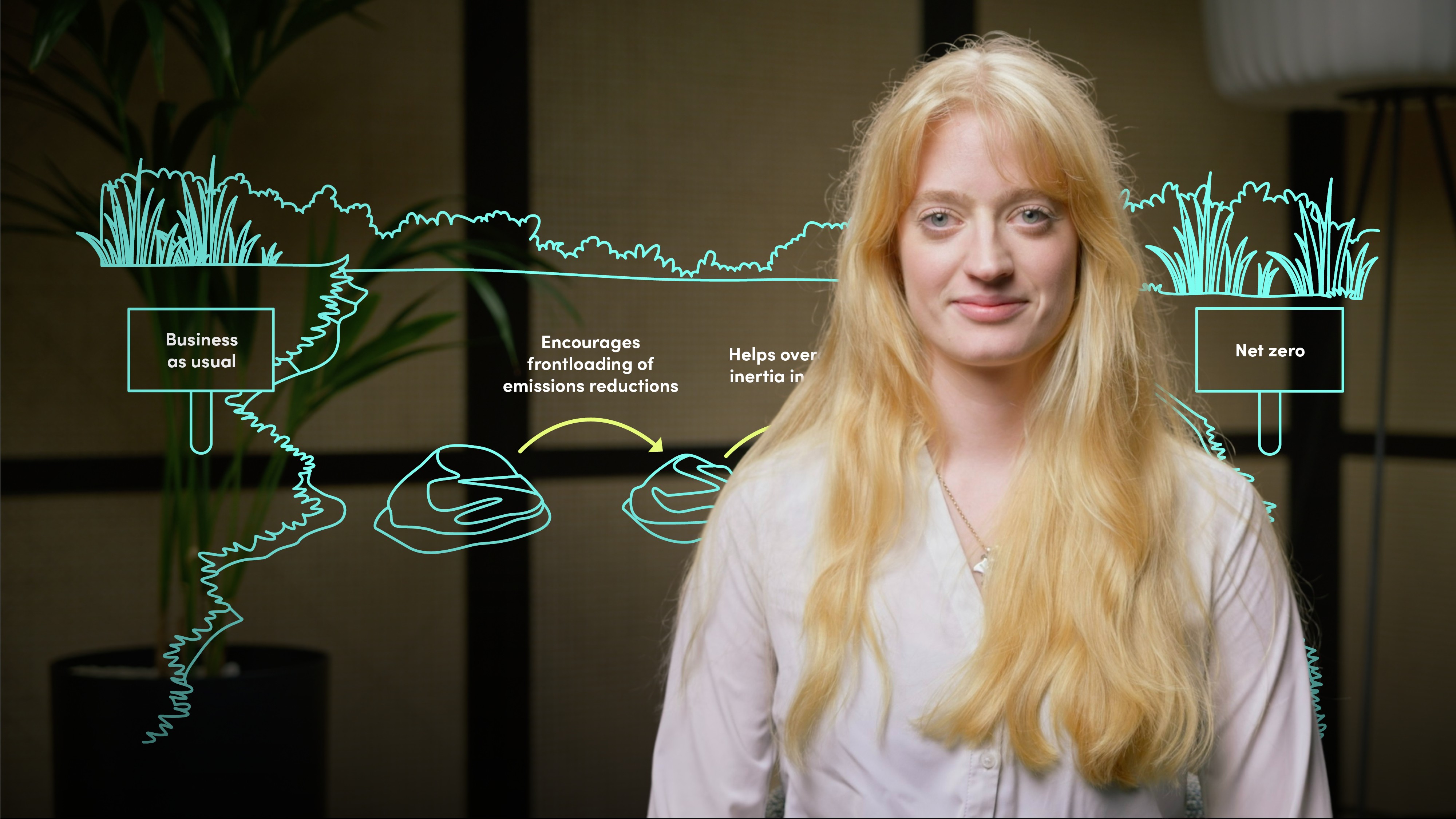
Assessing Net Zero Targets

Natasha Lutz
6 years: Sustainability and Net Zero
In this video, Natasha Lutz explores the recent surge in net zero targets, covering 92% of global GDP, as a pivotal step towards climate action. She explains how the Net Zero Tracker meticulously assesses these targets, scrutinising clarity, ambition, emissions scope, and implementation plans. She further discovers the importance of integrity in net zero targets, as we delve into the structured four-pronged approach of the Net Zero Tracker.

In this video, Natasha Lutz explores the recent surge in net zero targets, covering 92% of global GDP, as a pivotal step towards climate action. She explains how the Net Zero Tracker meticulously assesses these targets, scrutinising clarity, ambition, emissions scope, and implementation plans. She further discovers the importance of integrity in net zero targets, as we delve into the structured four-pronged approach of the Net Zero Tracker.
Subscribe to watch
Access this and all of the content on our platform by signing up for a 7-day free trial.

Assessing Net Zero Targets
7 mins 15 secs
Key learning objectives:
Understand how the Net Zero Tracker assesses entities' net zero targets
Understand why integrity is important when it comes to net zero targets
Overview:
The recent surge in net zero targets, encompassing 92% of global GDP, is a significant step towards climate action. The Net Zero Tracker evaluates these targets to ensure their efficacy and integrity. It scrutinises the clarity and ambition of the targets, including interim milestones; the breadth of emissions and greenhouse gases addressed; the robustness of implementation plans across all emissions types; and the balance between actual emissions reductions and the use of offsets. A mere 10% of emissions should rely on offsets, emphasising a 90% reduction. This assessment underscores the need for transparency, accountability, and equity, recognising the varied responsibilities of different economies and corporations. The collective aim is to avoid superficial pledges and foster real progress towards a sustainable, net zero future.
Subscribe to watch
Access this and all of the content on our platform by signing up for a 7-day free trial.
Subscribe to watch
Access this and all of the content on our platform by signing up for a 7-day free trial.

Natasha Lutz
There are no available Videos from "Natasha Lutz"


























